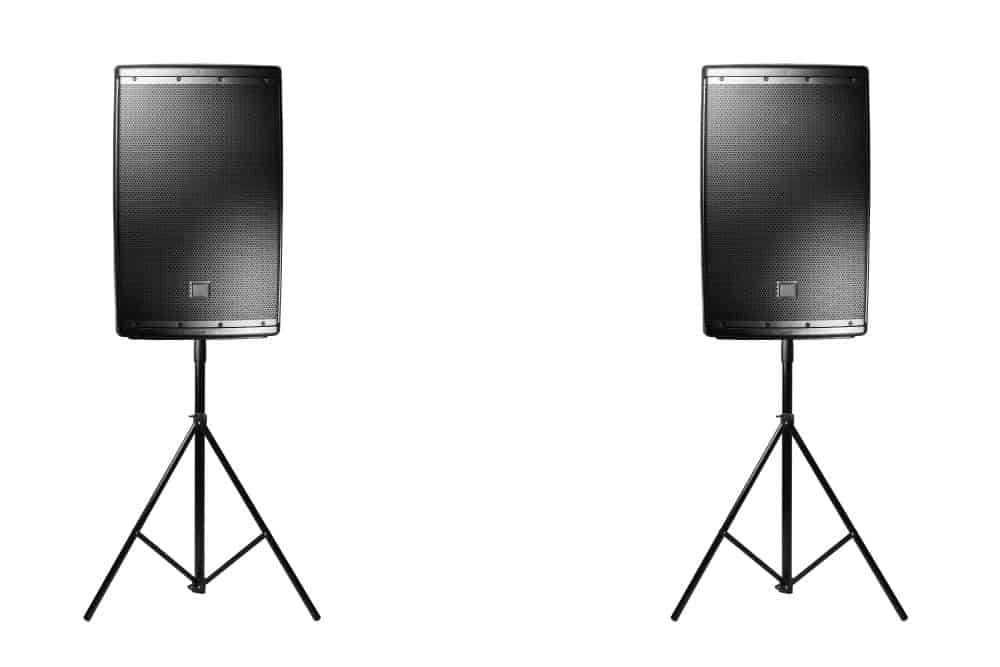If you are a music enthusiast you surely know that a good speaker set is the way to go. Now, whether you enjoy organizing house parties or listening to music during your free time, investing in a pair of high-quality speakers will go a long way.
On the other hand, it seems that we all forget the importance of amplifiers that should go along with it. If you are buying powered speakers, there is no need to consider it at all as those already have built-in amplifiers.
Still, matching all other speaker types with an adequate amplifier will provide a richer sound and will absolutely be worth your time and money.

While there are numerous articles on how to choose the right speaker, not a lot explain how to match them with an amplifier, and those that exist are usually too hard to understand for an average reader. That is why we have decided to come out with a few basic explanations and tips on what to consider when buying the right amplifier for your speaker set. Without further ado, let’s go ahead and take a look.
The Terms You Need to Know
While we are not going to get too deep in how amplifiers work explaining the electromotive force that powers it, you will still come across a few terms throughout this article – power, impedance, and sensitivity. Before moving on, we will try to explain these in a few sentences.
Power might be the most relevant term when it comes to matching amplifiers and speakers and is measured in watts. The number of watts an amplifier has is the amount of power it is putting out. Things are not as simple as going for an amplifier with the highest power, but we will get to that in a second.
Impedance is measured in ohms and represents the amount of electrical resistance your electrical components pose. It is one of the most important factors when determining the synergy between a speaker set and an amplifier.
Sensitivity is most important if you want to save some money on amplifiers by getting a speaker with higher sensitivity – the number of decibels is measured at the power of 1 watt and at a distance of 1 meter.
Why is Power Important to Consider?
Most people think that by buying high-power speakers and a low-watt amplifier they will be making the best combination there is – but that is not particularly true. Amplifiers have two types of power – continuous and dynamic; the first one is going to be more important for our consideration.
Continuous power is something that an amplifier can provide at any given moment – for example, 100 watts (per channel) into 6 and 12 ohms. On the other hand, dynamic power is more important in the electronics industry and it can be up to three times higher than the continuous one – still it lasts for just a few seconds, and shouldn’t be a relevant point for your choice.
With this in mind, your best bet is to compare the recommended amplification levels with the stated continuous power and consider the given results.
Why is Impedance Important to Consider?
As mentioned above, impedance is measured in ohms, and the high-quality amplifiers mostly operate at a 6- and 12-ohm impedance. Now, it is best to invest in speakers with a higher impedance, and an amplifier with lower impedance (6 to 8 ohms). If you were to do the opposite you would miss out on the sound quality and even risk that the two might not be compatible.
Why is Sensitivity Important to Consider?
A great example of proper sensitivity is the Q Acoustics 2050i, which is able to produce 92 dB at a meter of distance. While it doesn’t mean that a higher sensitivity speaker might be better in the long term, it would still allow you to save money on an expensive amplifier.
The important thing to know is that every time you double your distance from the speaker, the sensitivity drops about 6 dB. Your best bet is to go ahead and get a pair of speakers that have a high enough sensitivity to be driven by an average amplifier.
One Thing More to Consider
Last but not least, you need to be aware that the size of the room has an impact as well. The larger the room, the higher sensitivity of the speaker or power of the amplifier should be.
Conclusion
While matching an amplifier with your speaker set might seem hard, believe us it is not. Let the tips above guide you in your decision, and in no terms forget about impedance compatibility.
Read also: How to Increase Speaker Volume Without an Amplifier

